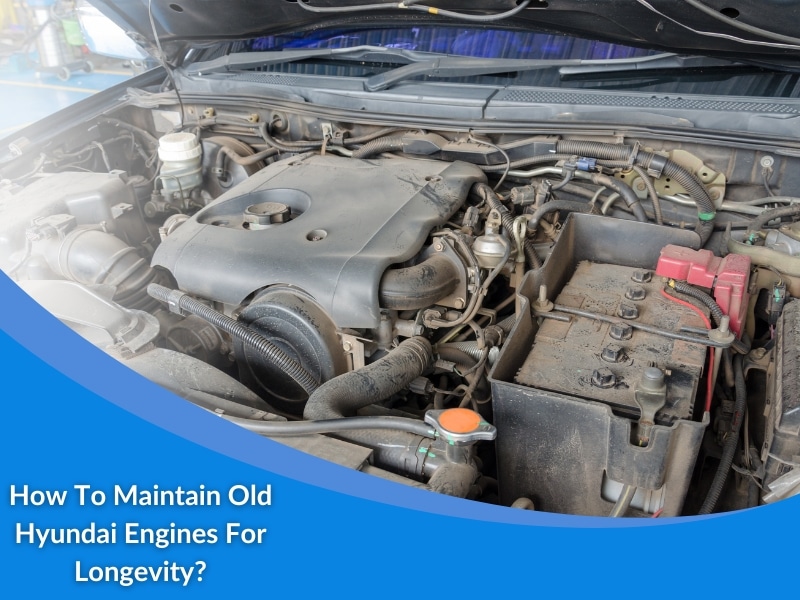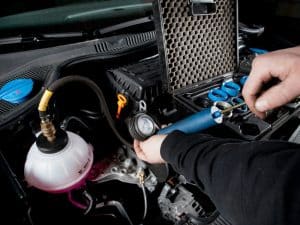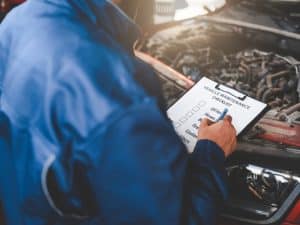Keeping old car engines running smoothly requires regular maintenance and care. Whether you own a Hyundai iLoad or another Hyundai model, proper upkeep is crucial in ensuring your engine performs well for years. Here are some practical tips to help extend the life of your old Hyundai engine and keep it in top shape.
What are the essential maintenance tips for old car engines?
Maintaining an old Hyundai engine isn’t just about checking the oil. Regular care will help avoid costly repairs and keep your vehicle on the road longer. Here’s what you should focus on:
- Regular oil changes: Changing the oil regularly ensures that your engine is properly lubricated and protected from wear. Neglecting this can lead to sludge build-up and damage.
- Check belts and hoses: Belts and hoses can crack or wear out over time, leading to engine failure. Inspect them regularly for signs of damage.
- Replace air filters: A clean air filter ensures your engine gets the proper air for combustion. Dirty filters can reduce performance and increase fuel consumption.
- Monitor fluid levels: Fluids such as coolant, brake, and transmission fluid are essential for engine health. Keep them topped up to avoid overheating and other issues.
- Inspect battery health: A weak battery can stress your engine’s electrical system. Check it regularly and replace it if necessary.
How often should you change the oil in an old car engine?
The health of your internal combustion engine depends on regular oil changes, especially in older Hyundai models. With age, engines can accumulate more wear and tear, making oil changes even more critical. But how often should you do this?
- Every 5,000 to 7,000 km: For older engines, it’s best to change the oil every 5,000 to 7,000 km. This helps remove debris and contaminants that can cause damage over time.
- Check the oil colour: If the oil looks dirty or gritty, it’s time to change, even if you haven’t reached the recommended mileage.
- Use high-quality oil: Always use the oil recommended for your Hyundai model. High-quality oil will provide better lubrication and protection for an aging engine.
- Look for leaks: As engines age, they may leak oil. Regularly check for leaks under your vehicle and address them promptly.
What should you check in the cooling system of car engines?
The cooling system is vital for preventing overheating, which can cause significant damage to your Hyundai engine. Keeping the system in good condition ensures the longevity of your engine. Here’s what to check:
- Coolant levels: Make sure your coolant levels are always topped up. Low coolant can cause overheating and damage to your engine.
- Radiator condition: Over time, radiators can become clogged or corroded. Inspect it for blockages and rust, and clean or replace it.
- Thermostat: The thermostat regulates the engine’s temperature. If it fails, your engine could overheat or run too cold, causing performance issues.
- Check for leaks: A leak in the cooling system can lead to coolant loss and overheating. Look for puddles of coolant under your car or stains around the hoses and the radiator.
How can regular tune-ups help extend the life of car engines?
Tune-ups are essential to maintaining any car engine, particularly older models. They help keep the engine running smoothly and efficiently. Here’s why regular tune-ups are crucial:
- Improves fuel efficiency: A well-tuned engine burns fuel more efficiently, saving you money on petrol and reducing engine wear.
- Enhances engine performance: During a tune-up, mechanics will replace worn-out parts and adjust components to keep the engine running optimally.
- Extends engine lifespan: Regularly scheduled tune-ups can identify potential issues before they become significant problems, prolonging the life of your Hyundai engine.
- Maintains emissions standards: Old engines can produce higher emissions if improperly maintained. Tune-ups help ensure your vehicle remains environmentally friendly.
What warning signs should you watch for in old car engines?
Sure, warning signs may indicate something is wrong as your Hyundai engine ages. Catching these early can prevent costly repairs or even engine failure. Here’s what to look out for:
- Strange noises: Knocking, ticking, or rattling can indicate engine trouble. Worn bearings, lifters, or other components are common causes of engine knocking that may require reconditioning.
- Decreased performance: If your engine feels sluggish or struggles to accelerate, it may be time for a check-up.
- Excessive smoke: Smoke from the exhaust could indicate an engine’s combustion process or oil-burning issue.
- Warning lights: Pay attention to dashboard warning lights, incredibly the “Check Engine” light. These alerts should never be ignored.
How can you prevent common issues with old car engines?
Prevention is always better than cure, especially for old car engines. Here are a few ways to avoid common engine problems:
- Stay on top of maintenance: Regular maintenance is your best defence against engine problems. Don’t skip oil changes, fluid top-ups, or inspections.
- Watch for leaks: Look for leaks under your vehicle, as they can indicate problems with the engine or cooling system.
- Drive gently: Avoid aggressive driving, as it unnecessarily stresses an aging engine.
- Fix small issues early: Minor problems like unusual noises or performance dips should be addressed early to avoid costly repairs later.
What are the signs that indicate it’s time to recondition your engine?
At some point, even with proper maintenance, an engine may need reconditioning. Here are some signs it might be time for a recondition:
- Excessive oil consumption: If your engine burns oil faster than usual, it may be time for reconditioning.
- Loss of power: If your vehicle has lost significant power, engine reconditioning can restore performance.
- Persistent overheating: An engine that constantly overheats, despite regular maintenance, may need a reconditioning.
- Unusual noises: Persistent knocking or rattling noises may signal the need for a complete engine overhaul service.
Don’t let engine problems slow you down!
Suppose your Hyundai engine shows signs of wear or requires maintenance. In that case, the Hyundai iLoad Engine Specialist is here to help. With years of experience working on Hyundai engines, our team can provide expert repairs, maintenance, and engine reconditioning to keep your vehicle running smoothly for years. Get in touch today to book an inspection or learn more about how we can help extend the life of your Hyundai engine.



